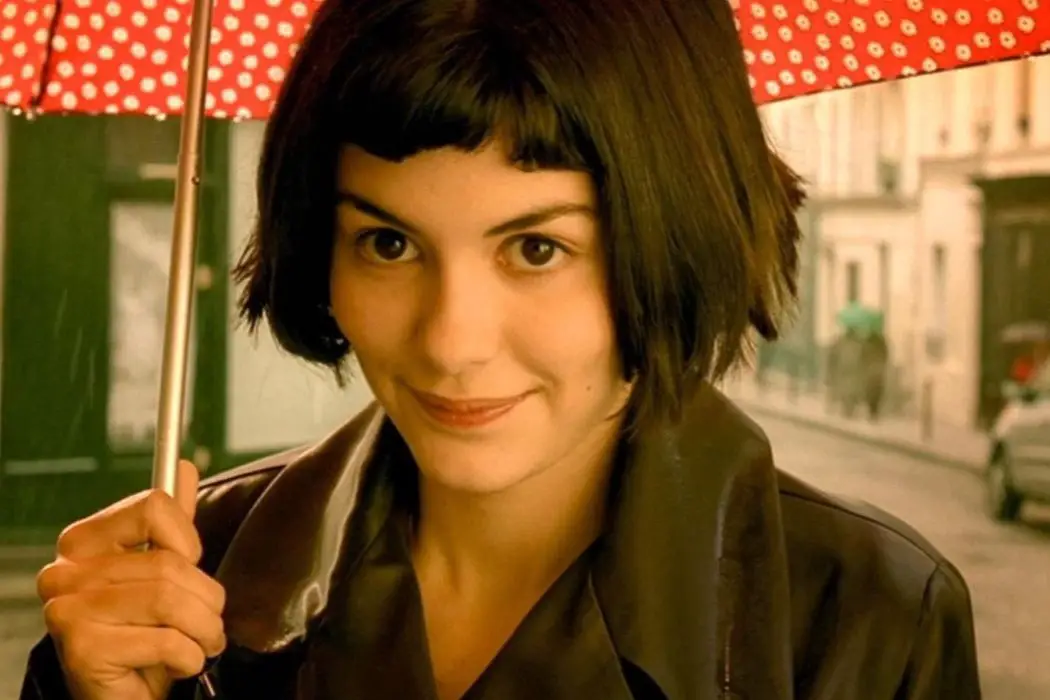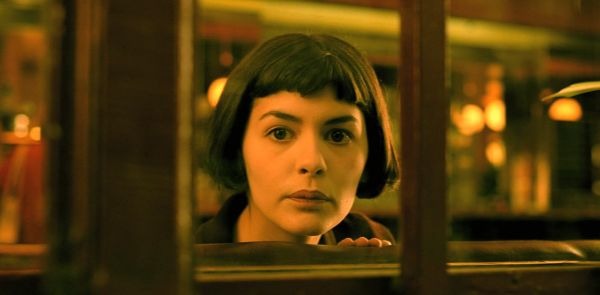AMÉLIE: Manic Pixie Dream Girl Or Feminist?

Tuesday Blue hails from the Midwest, spent eight years living…
Amélie, the 2001 French film by Jean-Pierre Jeunet, is frequently touted as a whimsical and charming romantic comedy. It was well-received at its release garnering numerous nominations from the Academy Awards, British Film Academy Awards, and César Awards. How does it hold up in 2019 when we are more critical of the roles that leading women are given? What kind of character does Audrey Tautou play when we examine her 18 years since the film’s release? Is it one that serves the male characters in the film or herself?
Is Amélie a Manic Pixie Dream Girl?
Amélie is a quirky, charismatic, whimsical film and so is the titular character. Oftentimes quirky or whimsical women in film tend to fall into the “Manic Pixie Dream Girl” such as Kirsten Dunst in Elizabethtown or Natalie Portman in Garden State. These characters don’t exist for themselves within the confines of the film but rather for (generally-speaking) male characters who need to learn to have a zest for life.
Manic Pixie Dream Girls have no story arc or development that would lead a character to have depth — they’re merely cute, quirky, and frequently childlike or mischievous. Amélie strikes me as this type of character initially but, rather than doing so to benefit the male characters in the film, she seems to be doing so for audience members who are missing the zest for life. The latter is just one of many reasons why Amélie doesn’t fall into the Manic Pixie Dream Girl category.

Director Jean-Pierre Jeunet has explained her background through a short stylistic chronology of her childhood including a “neurotic” mother and an “iceberg” father, a home-schooled education, and no friends beyond her imagination, due to a perceived health condition by her father. This allows us to understand her character isn’t so much impish as she is innocent and imaginative.
Throughout the course of the film, Amélie finds herself inspired to create magic in the lives of others from the shop employee who cares for endives to an artist whose bones are as fragile as glass. She is also inspired to subtly sabotage Collignon, the shopkeeper who has no qualms about gossiping and who hurls insults at those with gentler spirits. Amélie replaces his slippers with a smaller size, swap the handles on his bathroom door, and changes his speed dial contacts.
Amidst her efforts to brighten the lives of those around her (with that one exception), Amélie finds herself becoming enamored with a man she repeatedly sees in the train station gathering remnants of photos from the station’s photo booth. This is the part in the film where my memory of Amélie was skewed to believe she was a Manic Pixie Dream Girl. Her interest in getting this man’s attention leads him on an adventure and, having not seen the film for nearly twenty years (it came out in 2001), I was misremembering these moments. I thought they were showing her providing excitement to a character who would otherwise be uninteresting.

However, Nino, is an imaginative dreamer as well! He is interested in the puzzle of ripped-up and left-behind photos taken in train photo booths and works in both a sex shop and a carnival. In a sense, he is also speaking to the audience members who are missing the zest for life! Amélie and Nino both enhance the mystery and excitement of meeting each other with their shy-yet-adventurous scavenger hunts and curious train station notes.
Is Amélie Feminist?
I was pleasantly surprised – and a little relieved – that my memory of this film was wrong. Amélie is childlike and playful but her interactions with the world have meaning and the way she participates in the world makes sense given her background. Audrey Tautou provides us with a sweet and inspired journey to connect with others, whether romantically or otherwise.
Is Amélie a feminist? This is more challenging to answer as the character isn’t out to serve women’s rights or promote them. She’s merely living her life as a woman in the world and perhaps that’s feminist enough.
Do you agree that Amélie is not a Manic Pixie Dream Girl? Do you think she’s more of a feminist than I’ve concluded? Share your thoughts in the comments!
Does content like this matter to you?
Become a Member and support film journalism. Unlock access to all of Film Inquiry`s great articles. Join a community of like-minded readers who are passionate about cinema - get access to our private members Network, give back to independent filmmakers, and more.
Tuesday Blue hails from the Midwest, spent eight years living on the West Coast, and now resides in New York City. She earned her degree in film production from Portland State University and currently works as a freelance filmmaker. In addition to creating content she enjoys watching, analyzing, and writing about film and television!













